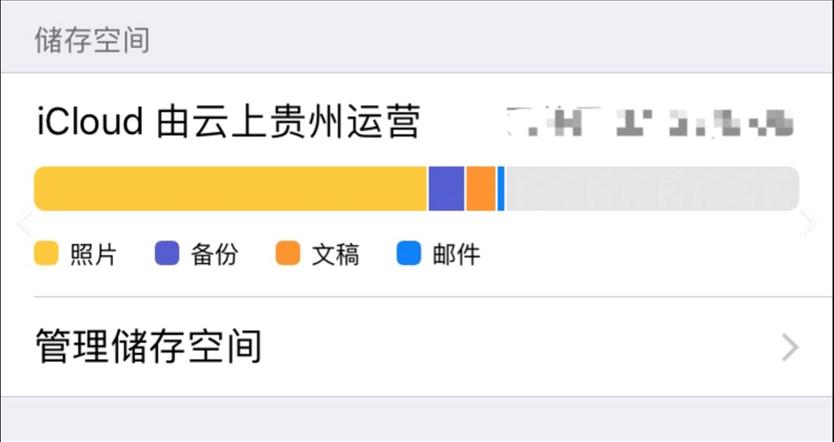
Deep inside China''s Big Tech data caves
(MENAFN- Asia Times) A remote, underdeveloped agrarian province in southwestern China is now a testing ground for Beijing's new tech and data regulatory regime.
A state-owned entity has transformed paddy fields and karst caves into state-of-the-art data centers where racks of servers are leased to tech giants ranging from Alibaba to Apple.
The massive amounts of data from Chinese citizens as they chat, browse and shop online are kept and crunched in the mountain reaches in Guizhou.
The ethnically mixed western province, still among China's least-developed regions and a big recipient of poverty alleviation funds, ticks all the right boxes to host such data centers, despite lagging behind better-off provinces in internet and smartphone penetration.
Tech firms looking for secure locations for their vital storage and backup systems say Guizhou's cool climate, clean air and abundance of hydropower appeal. Guizhou's combination of natural advantages can help lower operating costs and energy use since storage devices on an industrial scale can use as much electricity as a small city.
Beijing's regulatory drive in recent years, seen in the enactment of a cybersecurity law in 2017 mandating local data storage and management for all businesses collecting information from Chinese customers and recent data squeeze of Alibaba and its Ant Financial, are pulling Guizhou into the technological age.
The law and other related bills say sensitive data concerning privacy, proprietary information and China's national security must not be sent or shared beyond China's borders. Government agencies can take ''discretionary actions'' to intercept and retrieve data from business entities including foreign-invested ones.

A new massive data center is constructed beneath a mountain in Guizhou, known for its cool climate and cheap land and electricity. Photo: Handout
Anticipating Beijing's new legal regime, Guizhou's provincial authorities pooled capital and founded Guizhou-Cloud Big Data Corp in 2014.
According to Guizhou Daily, the state-owned enterprise was tasked with building and running ''big data parks'' across the province, with part of the hefty outlays on infrastructure and connectivity footed by Alibaba.
The province's then-party chief Chen Miner was a big supporter of the Chinese e-commerce behemoth when he served as deputy governor of Zhejiang, Alibaba's home province.
Tencent, owner of China's ubiquitous app WeChat, also later chipped in with investments. Tencent founder Pony Ma once told Chen that the firm's 300,000 servers, routers and hard-disk drives housing some tens of petabytes in storage capacity would enjoy ''natural air-conditioning'' in a 470,000-square-meter cavernous facility built on a concrete slab deep underneath mountains.
Ma also said that its data centers would be ''nuclear attack-proof'' in the province's mountainous setting.
The ''data parks'' were brought together in a 15 billion yuan (US$2.33 billion) national pilot zone for Guizhou in 2016, with the express purpose of implementing Beijing's laws and policy initiatives to retain online data, regulate its use and presumably centrally analyze it.
That designation has brought nearly all of China's tech giants to the province, including Huawei, Foxconn and the ''big three'' SOE telecoms carriers, China Mobile, China Telecom and China Unicom.

The partnership between Apple and Guizhou-Cloud was announced after Beijing enacted a new law mandating all businesses to keep the data from Chinese customers within the country. Photo: Handout

A screenshot of the iCloud page of a Chinese iPhone user states that the service is provided in partnership with Guizhou-Cloud.
Guizhou's data center building spree was under the news radar until Guizhou-Cloud's servers and Apple's iCloud storage and computing platform were hooked together in a deal announced in 2017. The hook-up had many users of Apple's hit products wondering if Beijing sought to surveil their online communications and activities.
Apple was adamant that its partnership with the Guizhou SOE was aimed at complying with Chinese laws and that no compromises would be made on its rigorous encryption and privacy protection protocols.
The iPhone-maker, which champions privacy protection in its local commercials, has spent $1 billion and commissioned Guizhou-Cloud to operate dedicated data centers for its iCloud services for mainland Chinese users. Users, nonetheless, have also been given the option to close their iCloud accounts so no data will be backed or synced to servers in Guizhou.
Although Apple has vowed full compliance with local laws and regulations, it is still not allowed to take full ownership of the data centers in Guizhou due to Chinese laws that require a local joint venture partner. In comparison, Apple's backbone data nodes in America and Europe are all wholly owned and operated by the company.

Apple's futuristic data center in Guizhou. Image: Twitter
Guizhou says it has passed by-laws to uphold privacy. A senior executive of Guizhou-Cloud once told reporters that the government had never asked him to disclose data. Guizhou-Cloud has also appointed a ''chief privacy officer'' in a bid to assure some skeptical Apple users in China.
Indeed, there have been no reports of privacy breaches by Apple's iCloud partners in China. Apple revealed in its latest on government requests for customer data and how it responded that in the first half of 2020 it received 1,022 such data requests from mainland Chinese government departments and that it had met 935 of them.
Apple said in its report that government and private entities would be required to follow applicable laws and statutes when requesting customer information and data.

Legal Disclaimer:
MENAFN provides the
information “as is” without warranty of any kind. We do not accept
any responsibility or liability for the accuracy, content, images,
videos, licenses, completeness, legality, or reliability of the information
contained in this article. If you have any complaints or copyright
issues related to this article, kindly contact the provider above.


















Comments
No comment